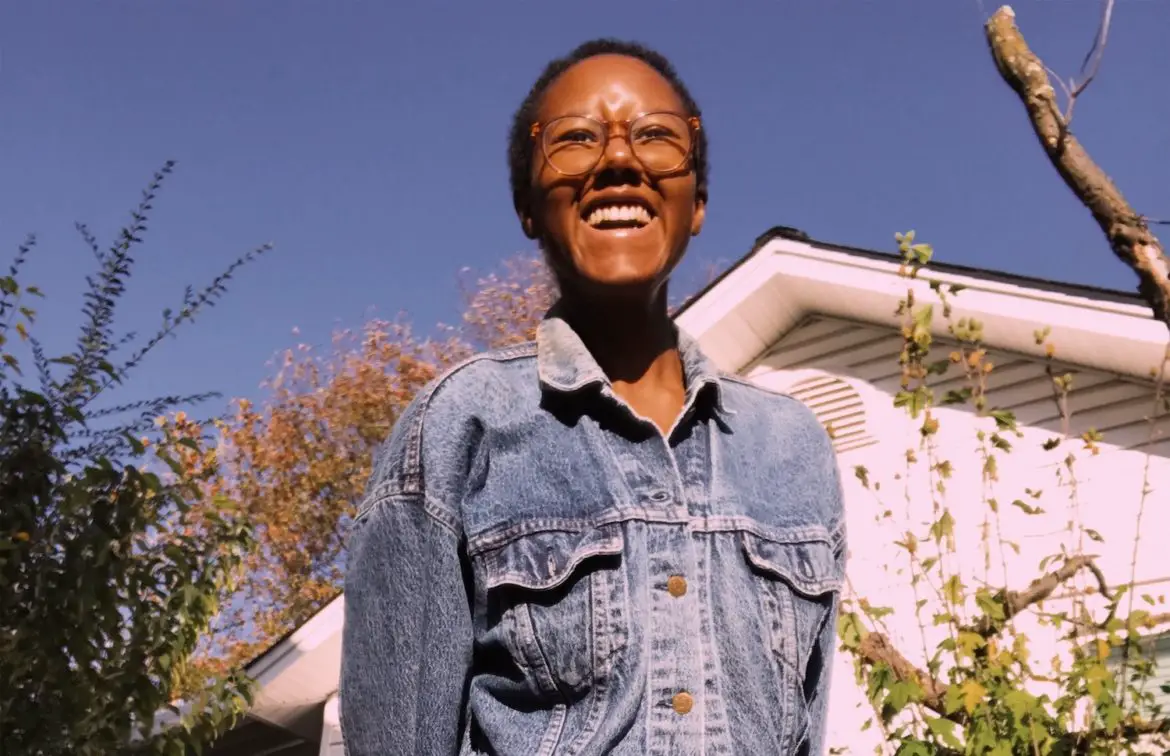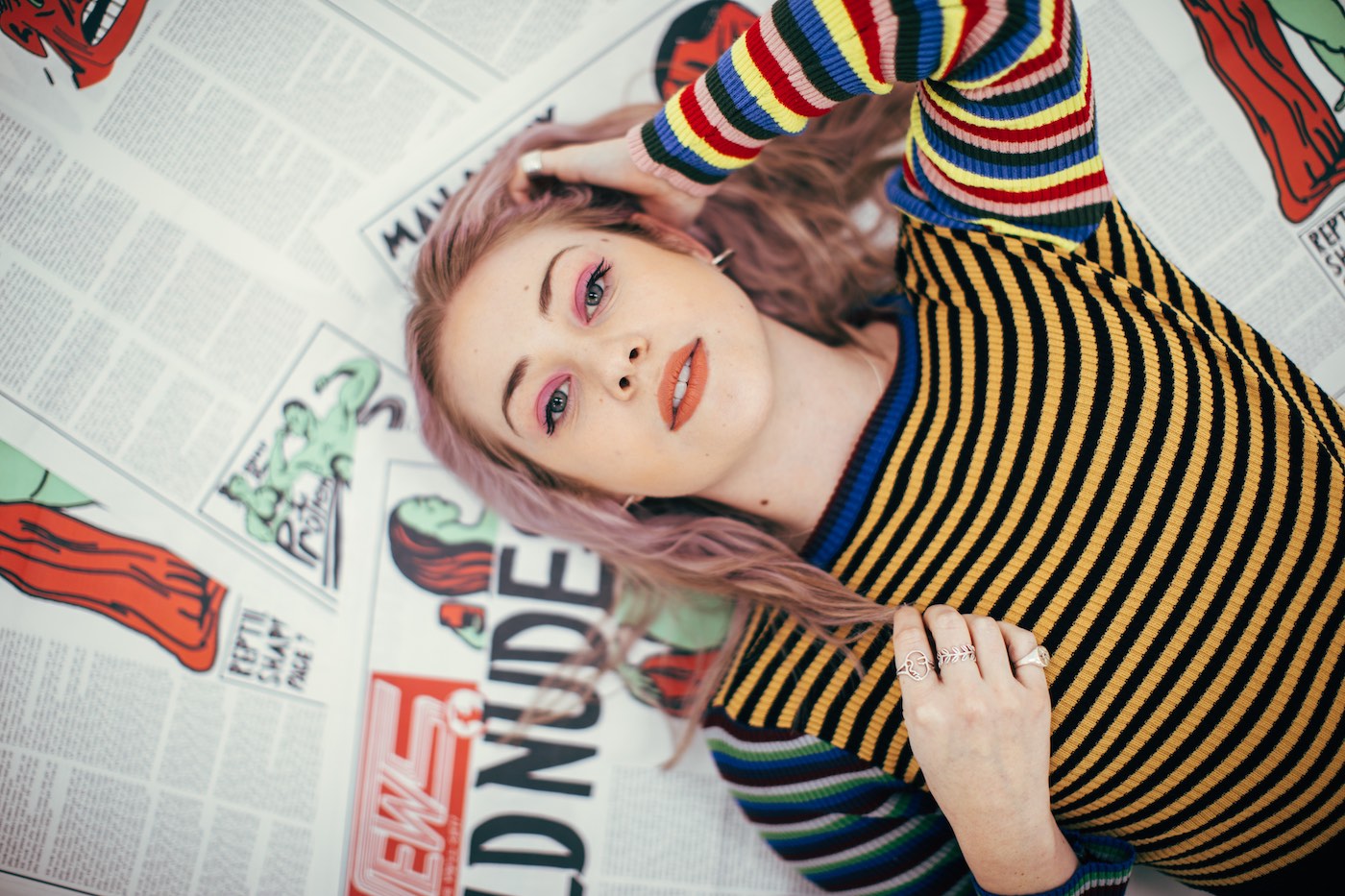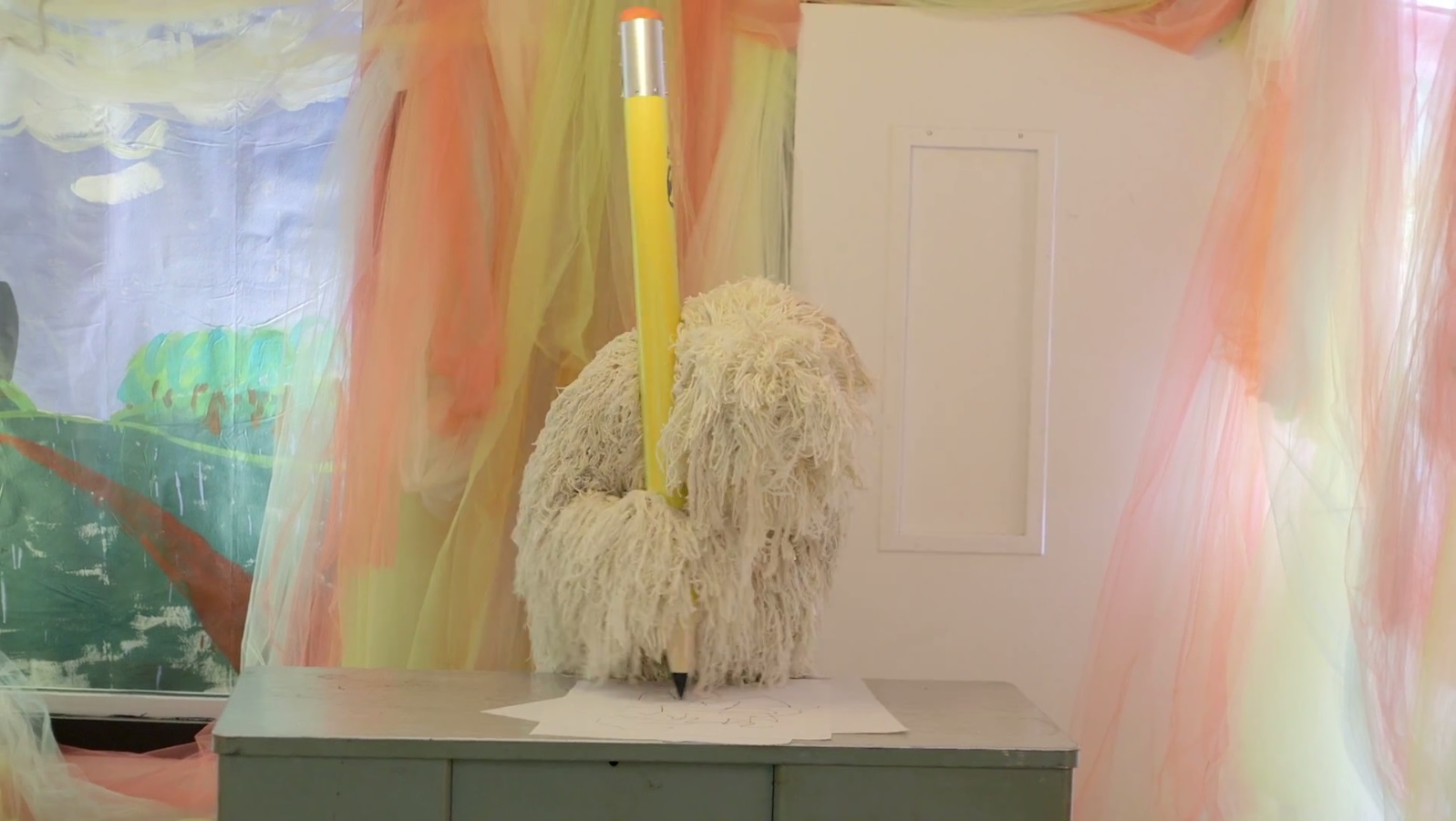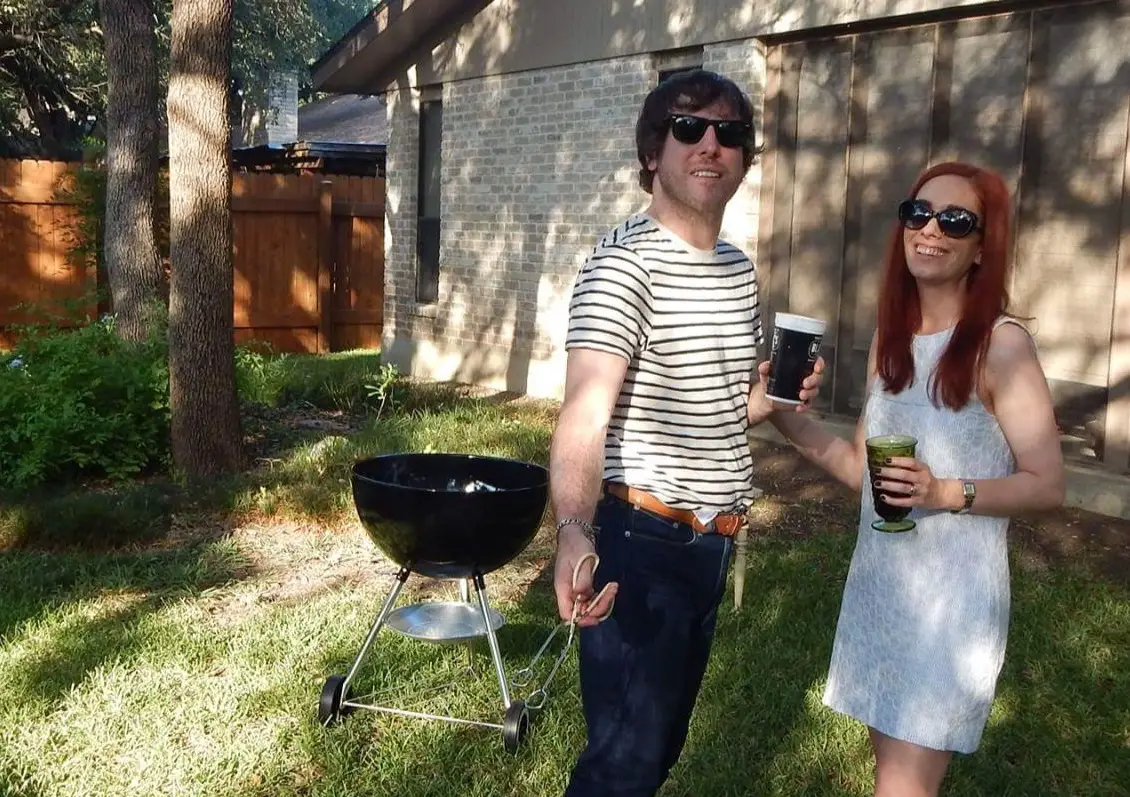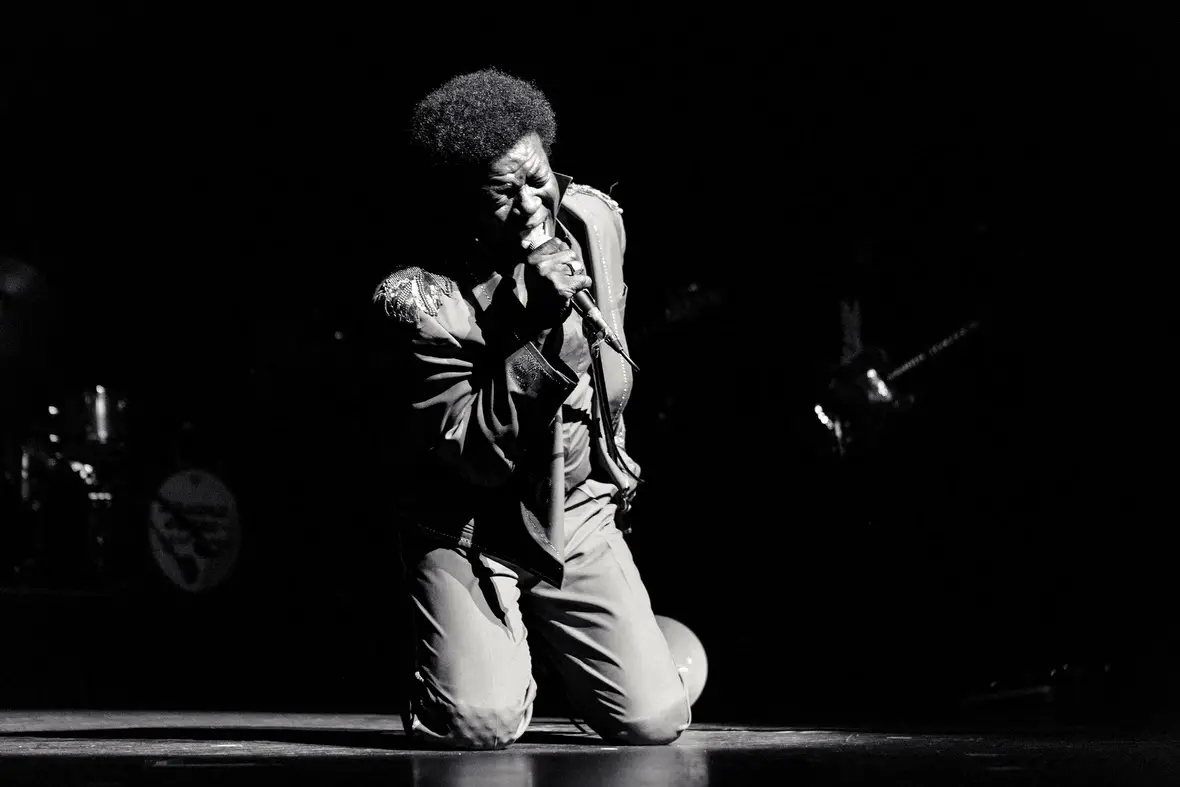With self-doubt weighing heavy on her mind, Neffy confronts her darkest demons in newest track, “I Lost My Nerve”; a stirring confessional and emotional purge of the singer-songwriter’s greatest fears.
Stream: “I Lost My Nerve” – NEFFY
I lost my nerve, and I think I’m gonna die.
With that statement, Neffy concisely sums up her current predicament: the mind of this singer-songwriter has been altogether consumed by her determined attempts to navigate through the various demands of the music industry. Though, these continuous efforts to stay afloat have only served to alienate her from the reason why she chose to participate in the industry in the first place: to make music.
Neffy confronts this devastating aspect of burnout head-on within the musings of her newest single “I Lost My Nerve,” released independently via Bandcamp on Nov. 2, 2022. Carving out airspace to acknowledge the sheer hopelessness she feels, Neffy eloquently expresses her overall dissatisfaction with the world surrounding her.
But rest assured, it’ll take a little more than that to knock Neffy down.
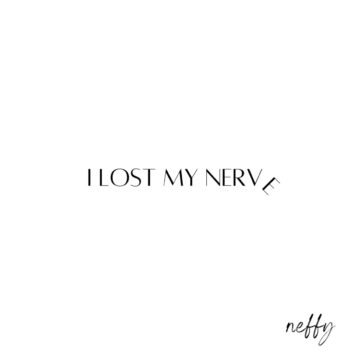
After winning NPR’s Tiny Desk Concert Contest in 2021, Neffy’s melodies have lingered in the ears of listeners long after the last strum of her guitar reverberated through the socially-distanced NPR offices in Washington, DC. Her rich, resonant vocals coupled with agile fingerpicking cast a spell on viewers all over the world, directly reaching out to people during the COVID-19 pandemic, a time where loneliness ran rampant.
Since recording her Tiny Desk Concert, Neffy has been nothing short of busy; booking a few artist residencies, gigging around the DC area, and working on her repertoire. And while she has certainly kept herself occupied, it confessedly hasn’t been easy to stay motivated.
Navigating through the music industry is comparable to wandering through a labyrinth — just when you think you’ve made it to the center, you realize you’re actually stuck in a dead end and have to rush to retrace your steps. This notion perhaps applies tenfold to independent artists like Neffy, who must make sense of the industry all by themselves.
“There’s a lot of factors that are hindering — maybe even slowing down the process — of achieving what you really want to achieve in your dreams,” she asserts.
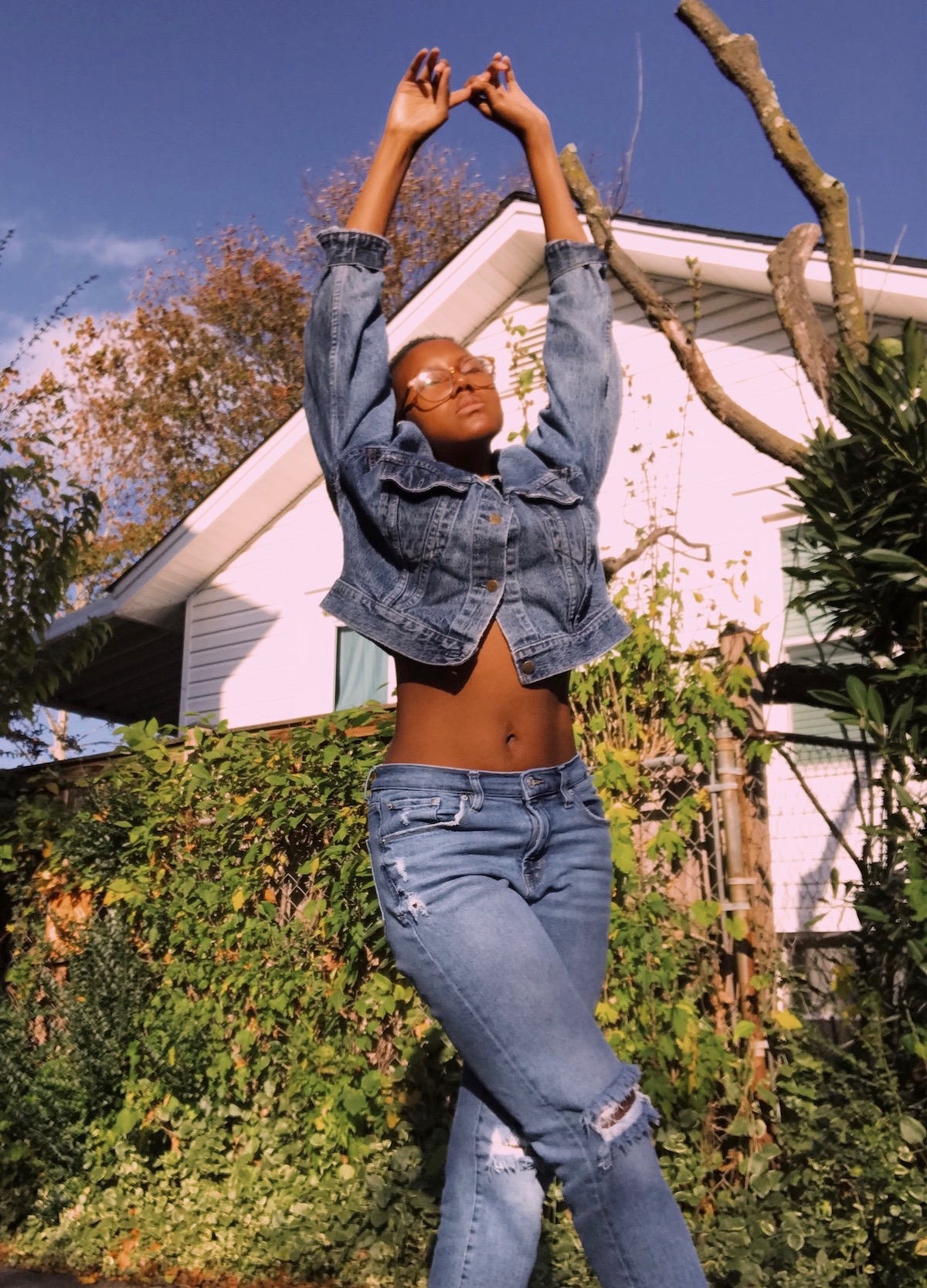
Neffy pinpoints three things as the main contributors in creating a hostile music industry:
The lack of support systems in place for independent artists, inequitable practices from streaming services, and the fierce competitiveness between artists.
Independent artists don’t have extensive management teams full of publicists and agents; they’re essentially left to face things on their own. They must constantly be thinking about the next step in their careers, as no one else is there to map out all of their moves for them. Neffy shares that with how oversaturated the music market is today, one can no longer be solely a musician; “you have to be a marketer, you have to be your own PR person, your own publicist” — you have to be willing to wear all of the hats, or be left in the dust.
Everyone’s favorite music streaming app plays into the issue as well, as it has been found that Spotify drastically underpays its artists (with Business Insider pointing out that at times, Spotify pays its artists as little as $0.0033 per stream).
The lack of transparency on the behalf of various streaming services is a concept Neffy takes great issue with, as she claims: “If listeners don’t know the disproportionality of royalties and payments for artists on Spotify, then they’re going to continue to support that 100% without recognizing other ways to support independent artists outside of just streaming alone.” Alternatives to streaming on these platforms is actually purchasing artists’ work on platforms like Bandcamp, or directly supporting artists through their Patreon pages — both of which Neffy considers to be inherently “more intimate with other people” than streaming services.

In addition to the aforementioned obstacles, the ‘dog-eat-dog’ mentality is much more common in the industry than one would think. At times, “it feels like it’s ‘every man for himself,’” Neffy admits. “Someone might have the answers, and it’s like: ‘Can you tell me? I’m not trying to steal your joy. I just need to know what the lay of the land is, because I’ve never done this before” — The gatekeeping is huge.”
“Artists need each other more than anything,” Neffy affirms. Working together and making space for conversation is what will create positive change within the industry’s modus operandi. “If you’re keeping things to yourself, the issues don’t get a voice […],” she claims. “I get it — we exist in this capitalistic vacuum, and yes, we all have our own responsibilities, but on a larger scheme, how can we be able to support one another at the same time?”
All of these observations come to a culmination within “I Lost My Nerve,” of which Neffy says: “I’m not really sure about anything right now, which is what the song is about: navigating everything on my own in the industry, but then still getting it done, still putting it out there.”
She begins the track, singing: “I cannot play a chord without my hands shakin’ weak / I cannot sing a note without my voice crackin’ deep / It’s been too long since I dared to pick up my pen / All because I’m terrified to look deep within.” Frozen by the fear of all of the pressures that surround her, she feels as though there is nothing left to do but melt away, as she straightforwardly proclaims: “I lost my nerve and I think I’m gonna die / I’m too young to give me up, but I’m old enough to try.”
But Neffy is still here, and is perhaps stronger than ever before. All of these years searching for a way into the music industry have forced Neffy to take matters into her own hands — which she doesn’t necessarily believe to be detrimental. In fact, Neffy shares: “It is empowering to take agency in [my music].”
Pursuing this career path essentially on her own has both thickened Neffy’s skin and simultaneously allowed her to develop a deeper understanding of her own art.
As the writer, producer, instrumentalist, and vocalist on all of her projects, Neffy has complete jurisdiction over how her art is created — “I love doing all the things that I’m doing, even though I’m realizing that I am wearing multiple hats here,” she discloses.
When asked what allows her to keep going, Neffy answers without hesitation: “I heard this thing where if you’re an artist, you don’t really have a choice but to be one naturally. I wholeheartedly agree with that, because I feel like I can’t go on with my life and not create or write — I don’t know how to do that […]. I would be so disappointed in myself if I didn’t do everything I possibly could to try and make it work, despite all the odds that are against me. That’s what really keeps me going.”
And so, as determined as ever, Neffy will continue persevering through the highs and lows that this life brings. Needless to say, this musician will be clearing the way for a better and brighter industry — “day by day, week by week, lyric by lyric, word by word.”
Continue reading below to learn more about Neffy and the beliefs that inform how she lives life and the music she creates, and be sure to support her by listening to “I Lost My Nerve” on BandCamp!
That’s what an aspect of really good art is; as long as it’s honest and central to being truthful, that is the narrative that keeps me putting music out there.
Stream: “I Lost My Nerve” – NEFFY
A CONVERSATION WITH NEFFY
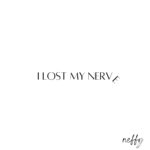
Atwood Magazine: We chatted in February of this year; how have you been since then? What have you been up to?
Neffy: Pretty good. I did a few artist residencies, I gigged virtually, and I’ve returned in person, which has been great. I released and produced [“I Lost My Nerve”]. I’ve produced a few of my own songs, and have been writing, but this is the first one that I wanted to put out.
What’s the producing side like for you?
Neffy: I had to take that into my own hands because of COVID; I started with the song “Wait Up.” Back in 2020 and early 2021, I was part of this program where I ended up writing these songs virtually, so I decided to enter the Tiny Desk Concert, and that song won.
That worked out okay, so I [continued] to try this and see if I could get better at it, or to see what I could use on hand. It’s difficult to find a collaborator production-wise that can really understand my sound and what I want. It’s easier for me to take it into my own hands and work with what I have. This song was honestly very, very immediate. It was a very urgent song that I wanted to get out into the world quite quickly. I wanted to be raw, and it would be easier for me to do it on my own, and much faster.
No one knows your art like you do. Like you were saying, it's really empowering to take it into your own hands.
Neffy: It really is empowering! The sense of urgency that I have been feeling lately with the subject matter of the song felt easier to put out into the world much faster. I’m really trying to employ everything that I have with not very much. I’m not really a producer — I don’t really consider myself that. Like you said, it is empowering to take agency in that.
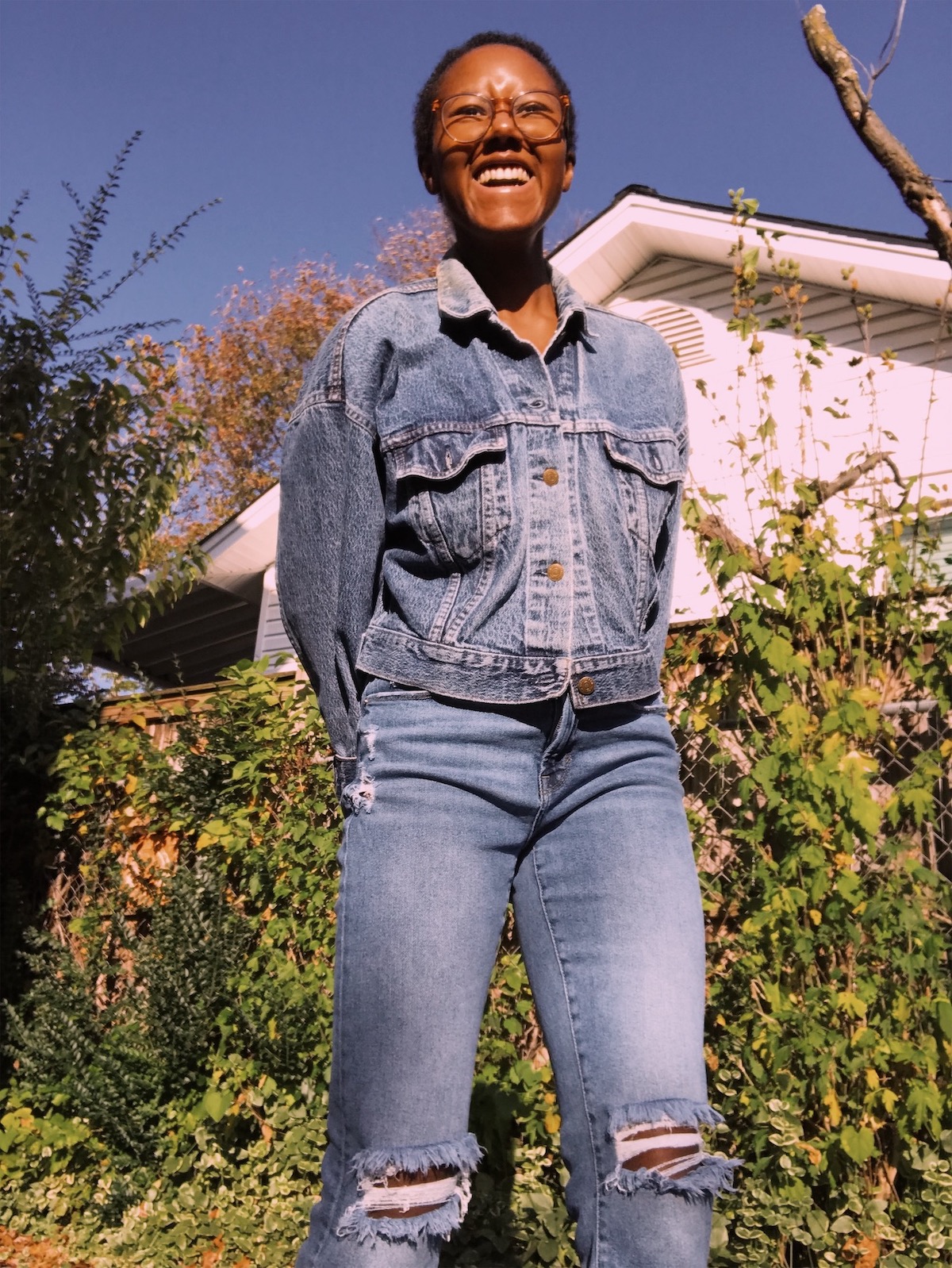
I love that. I wanted to touch upon social media next. It has become a really big thing for artists. There's no longer just being a musician, you have to have a self-promotion presence on social media. What is your relationship with social media as an artist?
Neffy: That’s a great question. I really do not like what social media has become. This oversaturation of a lot of content tends to water down the meaning behind what an artist might put out on social media.
That’s why it’s important to diversify where you’re putting your music, and where you’re connecting with your audience. You can put stuff on social media, but it’s also important to still do live shows and still have other platforms — like Bandcamp, where it’s very easy to foster an online community and have a fan base. That’s even more potent, because you’re able to dial in directly to people that you want to reach, rather than having to compete with whoever else is also on social media and whoever else is on your followers feed.
It’s really difficult, because of the algorithms. That can tend to work against an artist, but on the other hand, it can still do really great things to connect people. For me personally, I had just done a show two days ago, and I posted that I’m going to be playing two shows in DC, but I wasn’t expecting so many people to reach out to me through DM. There’s a fan base, there’s something [on social media] too, and that makes me really happy. It’s important to diversify. I don’t know what the future of social media will look like, so it’s important to not put all your eggs in one basket.
I like how you emphasize the importance of actually getting out there to perform, and the magic of being able to perform. The energy is so much different when you're in front of a bunch of people, rather than being on a screen trying to promote your work. That's a really good point.
Neffy: I’m not really a fan of social media. I’ve seen what it has done to people in my generation mental health-wise. As a society it might not be the best idea to, again, put all of our eggs in one basket. The real connection is with people in person, and even if in person action can’t necessarily happen, then establish and maintain relationships through some sort of more streamlined internet platform that’s digital — perhaps Bandcamp, which has been really great for me, or a Patreon. Something that’s more intimate with other people.
You do lose that community a little bit, because you're trying to appeal to the largest number of people possible instead of feeling okay with the people who come to you naturally. You're having to cater to everybody, and you can lose yourself to that.
Neffy: I’ve said it before, but you’re also competing with algorithms too. You don’t know where your stuff is gonna land on someone’s page, because you’re literally fighting against algorithms. That’s really out of your control. It’s oversaturated.
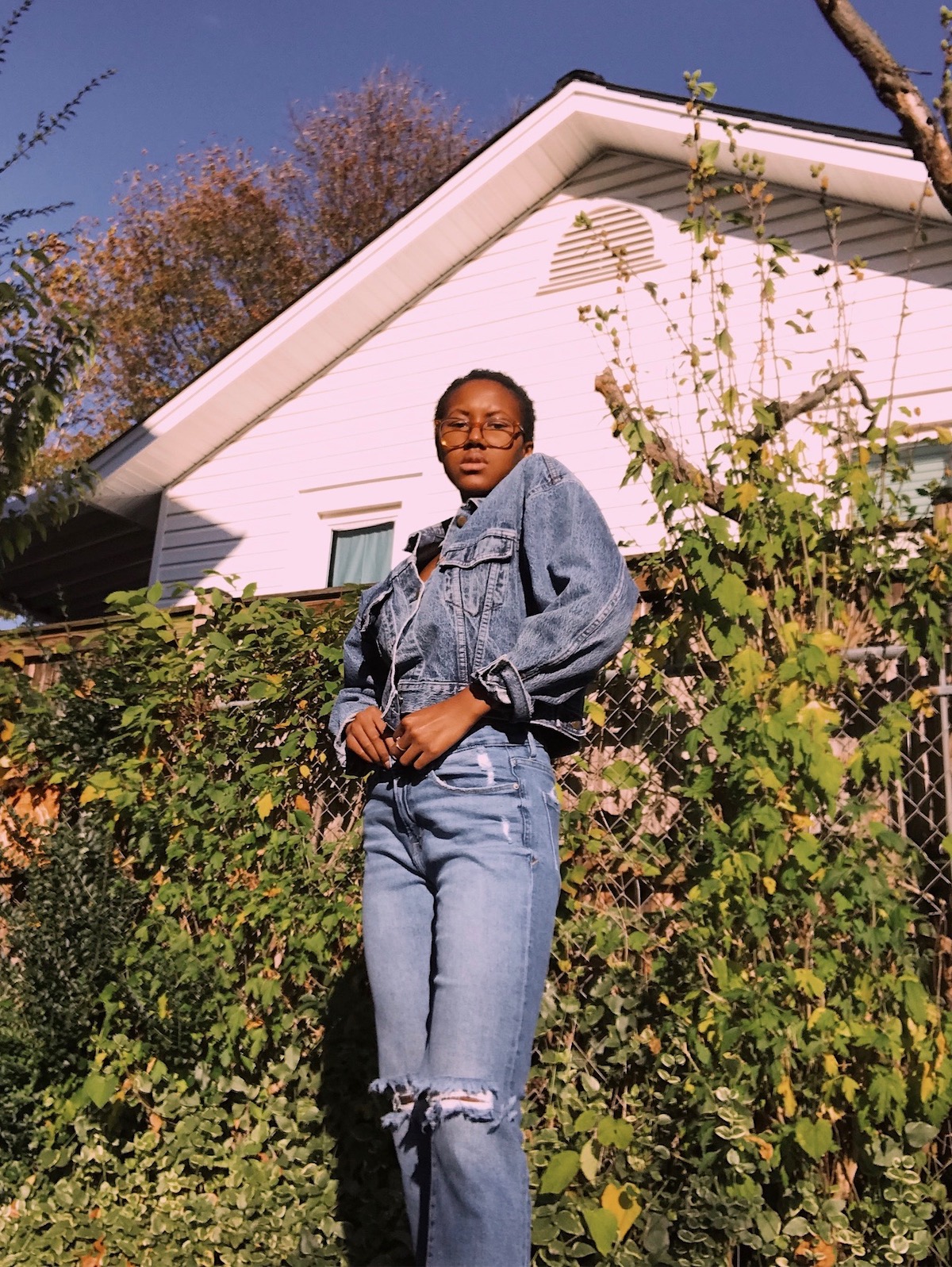
It's definitely a mental health issue at times. It's a very valid query to ponder through. Going off of that, the music industry can be a really tough one to navigate through, especially as an independent artist like yourself. What has your experience been like trying to navigate through it all?
Neffy: It’s so difficult. I went to a gig a few nights ago, and there were two other artists in the lineup. We bonded over the fact of how difficult it is to navigate this industry as an independent artist. Even if you have hit your goals so far, it’s really difficult. There’s a lot of factors that are hindering — maybe even slowing down the process — of achieving what you really want to achieve in your dreams.
The number one thing is a lack of support within the music industry. This circles back to how I was talking about having a producer or a team. It harkens back to having to do everything yourself, because you don’t have an immediate team that you can call on — not just production wise but PR wise. You have to navigate through what would be the next step outside of what you’re already doing, or what a band is already doing.
Number two — streaming. Talking about Spotify, that is the biggest one that has really hindered the ability for an artist to be able to make a sustainable amount of income from it, despite having a reasonable amount of streams. That is a huge piece.
And then three, there’s a lot of competitiveness within the industry. It feels like it’s every man for himself.’ Someone might have the answers, and it’s like: “Can you tell me? I’m not trying to steal your joy. I just need to know what the lay of the land is, because I’ve never done this before.” The gatekeeping is huge. But, at the same time, that has forced me to have to apply for entire grants or external funding or other opportunities. That makes it super grassroots and DIY, which I’m so down for, because it teaches you every aspect of the industry. You can’t just be a musician anymore, you have to be a marketer, you have to be your own PR person, your own publicist.
That has been really difficult for me personally, but it’s so worth it. Once you’re in front of the crowd, those are the things that bring me the most joy. People are having conversations with people, that’s what makes it so worth it. I’ve talked to other artists within the industry, other female artists and other women of color artists. We have had some conversations where we look at larger artists who have teams, and this whole sort of world that they fill. We want to know what the steps were, because we don’t know! There’s that lack of transparency within the industry. It’s so difficult to kind of navigate through the rocky waters.
Those are all really good points. They really hammer home the point that the industry is extremely inaccessible for a lot of artists — actually the majority of artists. Those are all really crucial points that guide us to see where we can address these issues in the future.
Neffy: The other thing that I’ve been thinking about is how do we address this issue? It is a huge issue, but no one’s really talking about it. Even the larger artists with the idea of streaming. A larger artist that might be signed to a record label, or might be independent, but landed huge partnerships and brand partnerships. When it comes to talking about streaming, they don’t want to have the conversation publicly. That also makes it very difficult. This is an asterisk on the streaming point that I made.
Even when I talk to crowds myself, they’ll ask: “How can we support you?” I’ll say: “Through Bandcamp and Spotify” — and I’ll talk a little bit about Spotify. When you tell people about how messed up the streaming policy is on Spotify, it’s news to them.
The issue is having to educate the listeners of Spotify. If listeners don’t know the disproportionality of royalties and payments for artists on Spotify, then they’re going to continue to support that 100% without recognizing other ways to support independent artists outside of just streaming alone. That’s just another part of it; the general public awareness of the difficulties within having to sustain yourself within the industry. That’s something that no one is going to continually keep this sort of momentum of people not knowing what Spotify is doing to smaller artists.
Lastly, I would say that because there is that sort of ‘every man for himself’ competitive mentality out there, when I do have conversations with other artists being very real on specific issues, I feel better talking about it. If you’re keeping things to yourself, the issues don’t get a voice. Just talking about it feels like a therapy session, and that lends its hand to saying we need each other as artists. I get it — we exist in this capitalistic vacuum, and yes, we all have our own responsibilities, but on a larger scheme, how can we be able to support one another at the same time? That’s just as important, if not more. Talking to other artists about these issues — you’ll talk about it and they understand completely. You don’t even have to explain it. That sort of telepathy — if you will — is so reassuring and affirming.

I would definitely say that artists need each other more than anything.
I love that about music as a whole — there's so much precious community that can be built up out of these shared experiences, no matter how rough they might be. There's always someone who's in it with you. I want to switch topics and touch upon ''I Lost My Nerve.'' The whole track centers the feeling of doubt that you have about your artistry and your potential. Creating art comes with criticism — not only externally, but internally — how do you deal with self-doubt when it comes to releasing the art that you make?
Neffy: I do that by working through the feelings and putting the music out there. It’s in my nature to want to share music. That’s a large part of what being a musician is. I eventually worked my way up to that point. Dealing with it for me, it’s just seeing it through. The only way that I can put it, is that I have to put it out there, and trust that this is a very accurate depiction of my feelings — about anything for that matter. That’s what an aspect of really good art is; as long as it’s honest and central to being truthful, that’s the narrative that keeps me putting music out there. It’s working through self-doubt, day by day, week by week, lyric by lyric, word by word.
That's so important. Your endurance is really what's going to keep you going. Perseverance is key. Instead of asking you specific questions about the track, I want to know what you want to say about the track — the motivation behind it, the writing process, whatever you want. Whatever truths that you want to have heard about the track.
Neffy: It harkens back to the last question you just asked me. Ironically, or I guess coincidentally, the song is a bit about self-doubt. You have to keep pushing through it, because I can’t see myself doing anything else. This is what I have chosen to do. It’s like a paradox, where in the song I’m exhausted and these are the things that I’ve been feeling.
I’m not really sure about anything right now, which is what the song is about: navigating everything on my own in the industry, but then still getting it done, still putting it out there. Even though I don’t really discuss that part in the song, getting through it all — I just talk about how I’m feeling. It’s the act of sharing and being so vulnerable. Vulnerability is so important to discuss in art, or to discuss as a whole. To do that through my art, despite my self-doubt, is hopefully something that I continue to do.
Showing vulnerability in a song can reach so many people. The themes that you sing about not only are applicable to fellow musicians, but so many people who have writer's block or are going through a transition. It's so applicable. Even though it might be extremely hard to bring up feelings, in doing so you can help so many people. I think you do a really good job of that with your writing.
Neffy: Thank you! I didn’t want to be too on the nose about it. I did get some responses from it. Someone used the word “vulnerable,” which is actually so funny. That’s where it comes from, because a lot of the songs that come from me are quite vulnerable in terms of the content that I’m talking about. All songs to some degree have that level of vulnerability, whether it’s me feeling cringe about it or not.
It's all about pushing on that discomfort. Which is an essential element of writing and getting yourself out there. In the track you sing, ''I'm hanging on / barely on'' — what keeps you hanging on and continuing to make music?
Neffy: I heard this thing where if you’re an artist, you don’t really have a choice but to be one naturally. I wholeheartedly agree with that, because I feel like I can’t go on with my life and not create or write — I don’t know how to do that. Even if it has been long periods of time in between writing or thinking creatively, it still happens. l innately do that — maybe that’s just part of who I am.
That’s what keeps me going, because I feel like I don’t really have a choice but to put things on paper, to put things to a melody. That, for me, is the best medium to talk about things that are going on in my life, or talk about things that are going on in other people’s lives. I’ll always continue to write, but in terms of pursuing it as a career — which is a whole other sphere, a whole other path — I want to see it through and know that I tried my hardest and know that I’ve done everything I possibly could. I believe in making music so much, and I want to be able to see that through. I would be so disappointed in myself if I didn’t do everything I possibly could to try and make it work, despite all the odds that are against me. That’s what really keeps me going. I’ve been completely honest with myself throughout the whole process and I’ve given 100% to it all. I really stuck to it. This is really what I want to do with the rest of my life. It could be other aspects of the arts as well, that’s really important to me. I want to continue to lead over the creative life and I want to make sure I see that through.
If you’re an artist, you don’t really have a choice but to be one naturally… I feel like I can’t go on with my life and not create or write — I don’t know how to do that.
That's a beautiful goal, as a lot of success in the industry is centered around making money and wanting to be the best. Having that root of wanting to be artistic and making art that feeds your soul is so powerful. What are you doing to ensure that you continue to grow and develop an artist? Are there any practices you do or mindsets you're in?
Neffy: To grow as an artist I want to start taking a few vocal training classes again, just to keep my voice in shape. Something that might not get talked about a lot is that you do have to train. Singing is a lot of athleticism. I don’t think people really recognize that there are mechanisms that take place when you’re singing. There’s a lot of stuff going on. I have taken a few vocal boot camps, and trained when I was in high school. I got to learn about the physicality of how singing works. I’ve always kept singing but I want to take a few classes to have that under my belt, just to keep that part going.
People don’t know about the terms and the breathing aspects. Everything about [Whitney Houston] and her singing abilities — she must have had some crazy muscle support in her back and her abs, because a lot of singing support and breath support goes on and has to support her voice. I want to make sure that I’m doing my part and keeping my voice up.
In terms of moving forward as an artist career wise, I have applied to fellowships. I actually did a fellowship over the summer, which was really awesome. It was really cool to be able to be with other creative people in that mindset. It allowed me to talk to other creative people, and that has been really great. I am hopefully in the process of applying to a few more grants, which has also been such a great experience — to learn how to write grants for independent artists. That has been a learning experience, and it’s a lot of tedious work, but I don’t mind it.
It's all a continuous journey. Like the saying goes, ‘the journey will never be over.’ It's so cliche, but it's very applicable to this field.
Neffy: I don’t really think of it as a job — I love doing all the things that I’m doing, even though I’m realizing that I am wearing multiple hats here. I always say that when things aren’t handed to you or given to you, you have to learn how to pull up your own bootstraps. It really gives you the agency and authority to understand how things work. In this case, I don’t have a team yet, but I’m learning how to do a lot of different things. Maybe in the future, I’ll be able to have a team, be able to direct, or at least have the understanding of what this person is saying to me and not just have it be a fly by night thing. I’ll actually be able to understand what we’re talking about and be able to direct them into helping me push this vision that I have in mind for myself for the future, and for moving forward.

We're at my last question. I like to end all of my interviews on a positive note. So I wanted to ask: what's giving you joy right now? It can be anything, big or small.
Neffy: What is giving me joy right now? Honestly, I would say I find a lot of joy in my morning tea in the morning. Just making my morning tea or making afternoon tea! I’ve always been a huge tea drinker. The act of making tea and drinking tea forces you to slow down. You can have it on the run, but when you’re intentional about it and take a minute to sit down and enjoy it, oh my god, it makes me so happy. I’m such an old woman. I would just say that making a nice cup of tea has been really great for me.
When things aren’t handed to you or given to you, you have to learn how to pull up your own bootstraps. It really gives you the agency and authority to understand how things work.
— —
:: stream/purchase NEFFY here ::
Stream: “I Lost My Nerve” – NEFFY
— — — —

Connect to Neffy on
Facebook, Twitter, Instagram
Discover new music on Atwood Magazine
? © courtesy of the artist
:: Stream Neffy ::

